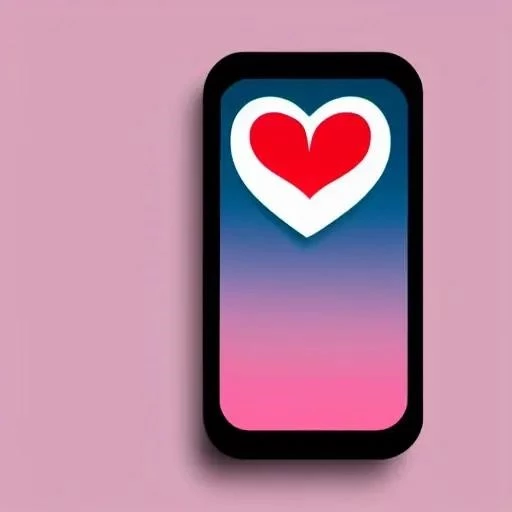
The healthcare industry is undergoing a seismic shift, powered by the relentless march of technology and an increasingly health-conscious population․ Forget sterile waiting rooms and impersonal interactions; the future of healthcare is personalized, accessible, and, above all, mobile․ We are witnessing a surge in innovative healthcare apps designed not just to treat illness, but to proactively enhance well-being․ In 2025, expect to see a proliferation of these apps, transforming how we manage our health and interact with medical professionals․ This article explores the most promising healthcare app ideas poised to reshape the market, offering insights into their potential impact and the opportunities they present for entrepreneurs and investors alike․
From sophisticated remote monitoring systems to AI-powered diagnostic tools, the possibilities are seemingly endless․ What distinguishes the truly groundbreaking ideas from the fleeting trends? The key lies in addressing unmet needs, leveraging cutting-edge technologies, and prioritizing user experience․ Consider, for instance, the escalating demand for mental health support, the growing prevalence of chronic diseases, and the increasing pressure on healthcare systems to deliver cost-effective care․ Apps that effectively tackle these challenges, offering convenient and personalized solutions, are poised to capture a significant share of the burgeoning healthcare app market․ Let’s delve into some specific examples that are already generating significant buzz and are expected to reach maturity by 2025, providing tangible benefits for both patients and providers․
| Category | App Idea | Description | Potential Impact |
|---|---|---|---|
| Mental Health | AI-Powered Therapy Companion | A personalized chatbot offering guided meditation, cognitive behavioral therapy (CBT) techniques, and mood tracking, all powered by artificial intelligence․ | Increased access to mental health support, reduced stigma, and improved patient outcomes through personalized interventions․ |
| Chronic Disease Management | Smart Insulin Pump Integration | An app seamlessly integrating with smart insulin pumps, providing real-time glucose monitoring, automated insulin dosage adjustments, and personalized alerts․ | Improved glucose control, reduced risk of complications, and enhanced quality of life for individuals with diabetes․ |
| Preventive Care | Personalized Nutrition & Fitness Tracker with DNA Analysis | An app leveraging DNA analysis to provide tailored nutrition and fitness recommendations, promoting proactive health management and disease prevention․ | Reduced risk of chronic diseases, improved overall health, and increased adherence to healthy lifestyle habits․ |
| Remote Patient Monitoring | Wearable Sensor Integration Platform | A platform aggregating data from various wearable sensors (e․g․, heart rate, sleep patterns, activity levels) to provide clinicians with real-time insights into patient health․ | Early detection of health issues, improved patient engagement, and reduced hospital readmissions․ |
| Women’s Health | Personalized Fertility & Pregnancy Tracking | An app using advanced algorithms to predict ovulation, track pregnancy progress, and provide personalized advice on fertility and prenatal care․ | Increased chances of conception, improved pregnancy outcomes, and enhanced support for women throughout their reproductive journey․ |
The Future is Data-Driven and Personalized
Looking ahead, the success of healthcare apps hinges on their ability to harness the power of data․ By integrating insights from AI and machine learning, these apps can deliver increasingly personalized and predictive care․ Imagine an app that not only tracks your symptoms but also anticipates potential health risks based on your individual genetic predispositions and lifestyle factors․ This level of personalization is no longer a distant dream; it’s rapidly becoming a reality․ By embracing a data-driven approach, healthcare apps can empower individuals to take control of their health and make informed decisions․
Challenges and Opportunities
While the potential of healthcare apps is undeniable, several challenges must be addressed to ensure their widespread adoption and long-term success․ Data privacy and security are paramount concerns, requiring robust encryption and adherence to strict regulatory guidelines․ Interoperability with existing healthcare systems is also crucial, enabling seamless data exchange between apps, electronic health records (EHRs), and other medical devices․ Furthermore, user experience is key․ Apps must be intuitive, engaging, and accessible to users of all ages and technical abilities․ Overcoming these challenges will unlock tremendous opportunities for innovation and growth in the healthcare app market․
Investing in the Future of Health
The healthcare app market is poised for exponential growth in the coming years, attracting significant investment from venture capitalists, healthcare providers, and technology companies․ The most successful apps will be those that not only address pressing healthcare needs but also prioritize user experience, data security, and interoperability․ By embracing a forward-looking and innovative approach, entrepreneurs and investors can play a pivotal role in shaping the future of healthcare and improving the lives of millions․
